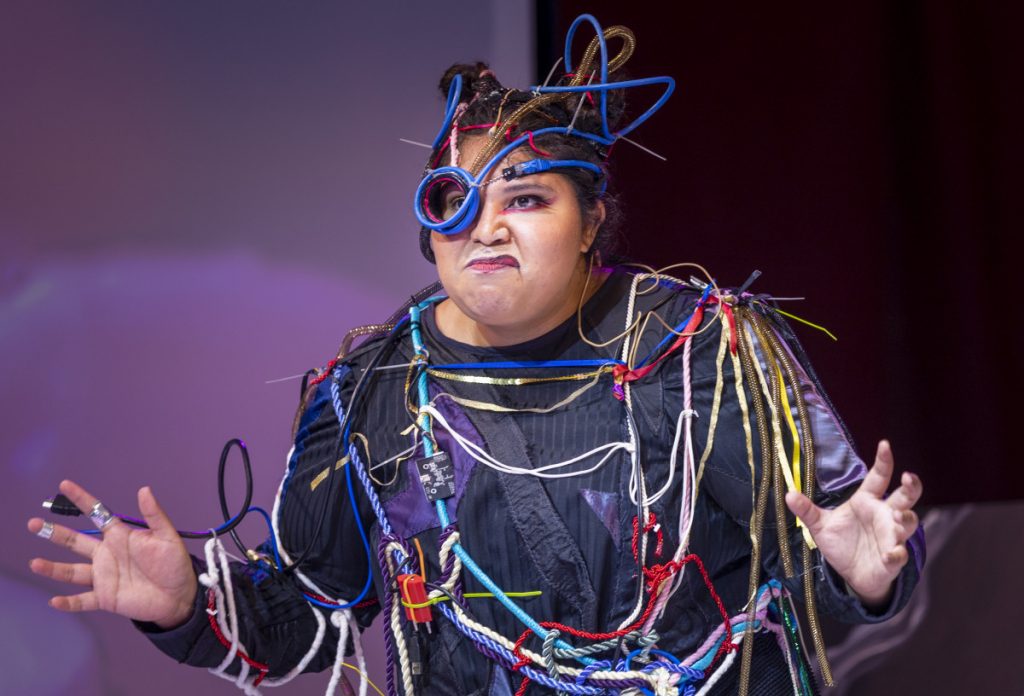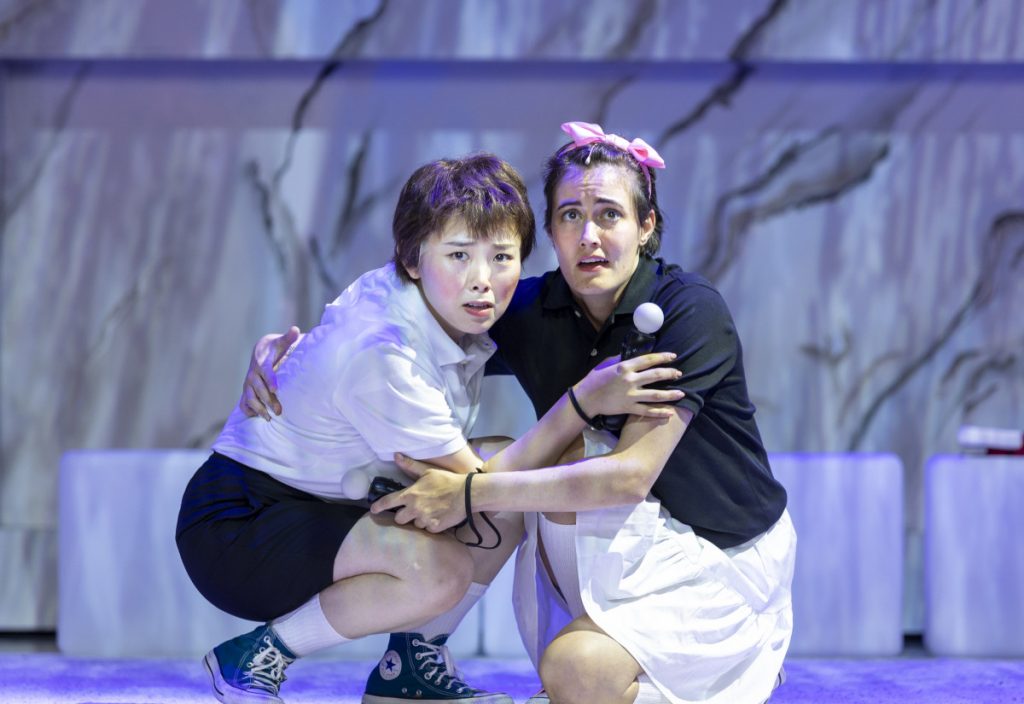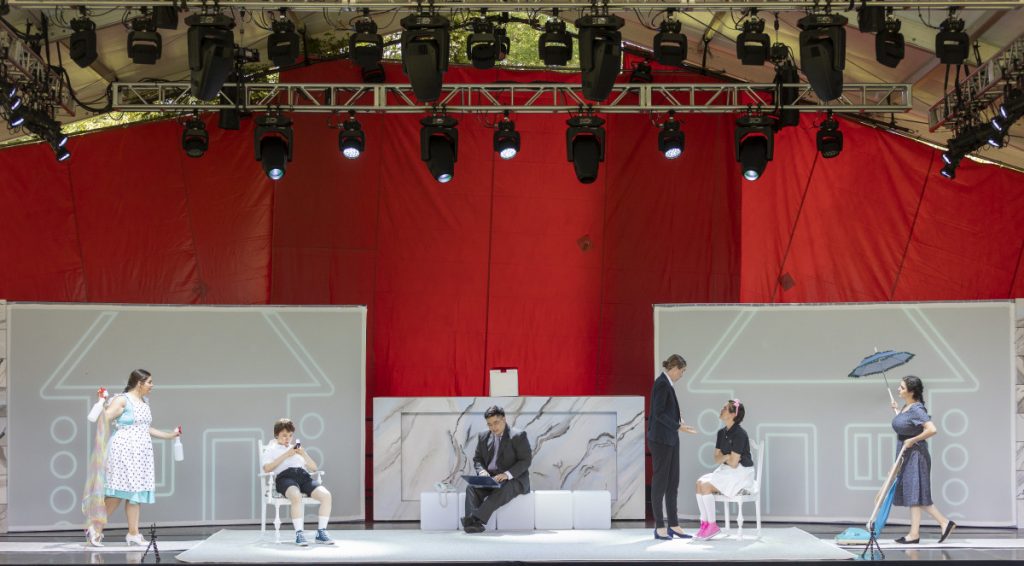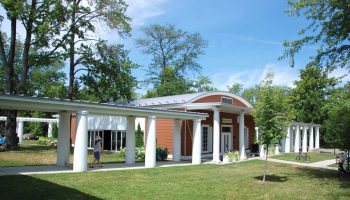NICHOLE JIANG & DAVID KWIATKOWSKI – STAFF WRITERS

The Brothers Grimm’s classic fairy tale story of Hansel and Gretel and their doomed trail of breadcrumbs is known all around the world. The opera, Hansel & Gretel, which premiered in Weimar, Germany, in 1893, now makes its way to Chautauqua with its first show at 6 p.m. Thursday, July 15 at the Performance Pavilion on Pratt. Bringing it to the stage are the students of the Voice Program, led by longtime Voice Chair Marlena Malas, using the seminal score by Engelbert Humperdinck.
Resident stage director John Giampietro, who has taught at The Juilliard School since 2010, has put a unique and modern twist on tonight’s performance, transforming a story people have heard countless times into something relevant and contemporary. Giampietro has directed numerous productions, including A Midsummer Night’s Dream for the National Shakespeare Company and Miss Julie and Feeding the Dead for New York City’s Accidental Theater. Giampietro has also assisted on productions for the Manhattan School of Music and New York University’s Tisch School of the Arts.
When Hansel & Gretel was chosen as 2021’s opera, Giampietro thought about how to update the story for the present day. If the characters of Hansel and Gretel were in the modern world, how would their tale change? He decided on setting it with the characters being trapped in an online game.
“What does getting lost somewhere mean? How do children get lost today? What are the dangers in the forest? Knowing how we’re all glued to our devices and how much we rely on connectivity and the internet in every aspect of our lives is a great resource, and it enhances our lives — but it can also be very dangerous,” Giampietro said.
The forest in the original story has been updated to be a virtual reality world within the dark web, a place operators can remain anonymous or untraceable.

“The Witch represents that area of the web that you can just get drawn into and lose touch with the rest of the world,” Giampietro said. “It takes (Hansel and Gretel’s) cunning to get out of it — to break the hold that the game has.”
While opera is not in any way a dying art, sometimes the classics are updated to reflect the times they are performed in.
“I always want to find a meaningful contemporary connection with opera,” Giampietro said. “I have nothing against traditional productions. But in order for opera to be vital and important to today and to get more young people interested in the art form, it needs to have some meaningful connection. For this, we’re modernizing and updating it.”
Julius Abrahams, vocal coach for the Voice Program and conductor for Hansel & Gretel, agrees.
“(Giampietro) always finds a spark of an idea that really can capture all of our imagination,” Abrahams said. “I think that’s very important going forward — to have a concept that’s important for today, but it also keeps the same themes as the original.”

Giampietro’s designs of the game projections were influenced by the 2000 action-adventure video game Alice as well as the mobile game Candy Crush Saga.
The show will have piano accompaniment by two musicians on the same piano: School of Music faculty members Martin Dubé and Kanae Matsumoto. The score was arranged as a duet, and Abrahams will conduct.
“The good thing about having four hands instead of two hands is obviously we can add more stuff in the piano parts,” Abrahams said. “The sound overall will be a warmer, complete sound.”
At the end of the day, the production is more about a showcase of the students in the Voice Program, but with the updated retelling, the Pavilion’s sound system and the projected graphics, the stakes feel higher.
“It’s not just a student-run thing, but it’s a level up,” Abrahams said. “Maybe (the students have) done some university productions or scenes, but to them, this is a big step.”
Chautauquans will have another chance to see the Voice Program in action, as the second show for Hansel & Gretel is set for 6 p.m. Saturday in the Performance Pavilion.




